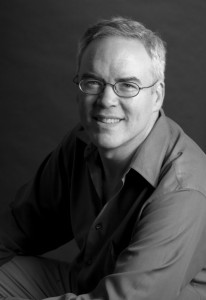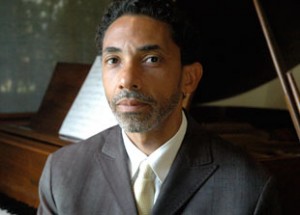Historians intervene, or write interventions, when they actively and explicitly create a connection between present and the past. Interventions are essays, generally, where today meets “back in the day.” The following examples cover higher education, schooling, civil rights, and the labor movement. Each is political, implicitly or otherwise, according to the tastes of the intervener. They are more and less polemical, but effective on either end of that continuum.
——————————————
(no. 23), Thomas Frank
uses his positive powers of polemics and persuasion, in a piece titled “Academy Fight Song,” to reintroduce the reader to the ills of the modern American university. Frank candidly confesses that his piece introduces no new knowledge. Rather, he contrasts two competing and irreconcilable truths about the university to build an argument for change. He notes that the American dream has become irrevocably intertwined with higher education while, concurrently, the pervasive forces of “The Market”—of creative destruction (or “disruption” per Ravitch below)—have corrupted the very goods that enabled the former connection. I think Frank’s vision the historical university is a little too utopian, and his view of management principles a bit too dystopian. But his themes accurately reflect all the recent critical literature (e.g. adjunctification/de-professionalization of faculty, proliferation of administrators, profit-seeking, pricing, building boom, infiltration of testing industry). And I believe the two truths he posits are fundamentally on target. Finally, I also agree his prescriptions for change (e.g. reverse these changes, make higher ed free/cheap, subsidize it heavily, get accrediting agencies to support full-time tenured labor, give students power of bankruptcy). I strongly recommend Frank’s highly entertaining intervention.
——————————————
 On Tuesday of this week (8/27) Tom Sugrue was interviewed Robert Siegel, from NPR’s “All Things Considered” program, about the relationship between the Civil Rights Movement and labor unions, both in the 1960s and today. Here’s a relevant part of the exchange:
On Tuesday of this week (8/27) Tom Sugrue was interviewed Robert Siegel, from NPR’s “All Things Considered” program, about the relationship between the Civil Rights Movement and labor unions, both in the 1960s and today. Here’s a relevant part of the exchange:
SIEGEL: How would you describe the relationship today between African-American causes and the causes of organized labor, such as it is?
SUGRUE: Well, in the ’60s, the relationship at its best was very tight and very close and it remains that way today. But the Civil Rights Movement is much less organized and more fragmented today than it was in 1963. And the labor union movement is a lot smaller and not nearly as politically powerful as it was 50 years ago. So, the two still collaborate, although there are, in many parts of the country, still hostilities that run deep between civil rights activists and unions.
Sugrue’s relevant piece serves as a short introduction and segue to what follows.
——————————————
 Robin D.G. Kelley‘s spot-on intervention in the Boston Review begins by arguing, with all the proper historiographic references, that the 1963 “March on Washington” occurred for reasons and under circumstances that are often forgotten. Namely, today’s commemorators often leave out the economic justice element and ignore the context of racial violence that had preceded the peaceful marchers. Then Kelley reminds of the unfinished business of the marchers (e.g. symbolized by African-American joblessness, the Trayvon Martin tragedy, fragmentation of the march coalition, etc.) and offers lessons for the present:
Robin D.G. Kelley‘s spot-on intervention in the Boston Review begins by arguing, with all the proper historiographic references, that the 1963 “March on Washington” occurred for reasons and under circumstances that are often forgotten. Namely, today’s commemorators often leave out the economic justice element and ignore the context of racial violence that had preceded the peaceful marchers. Then Kelley reminds of the unfinished business of the marchers (e.g. symbolized by African-American joblessness, the Trayvon Martin tragedy, fragmentation of the march coalition, etc.) and offers lessons for the present:
For better or worse, marches often concentrate a range of related issues into a few presumably achievable demands or easily digestible soundbites. These kinds of events, historic as they may be, are always in danger of abandoning a broad, complex, social justice agenda in favor of passing a law or mobilizing support for a single issue. Case in point: a long list of speakers at the 50th commemoration march organized mainly by the National Action Network covered a wide range of issues, from the New Jim Crow and home foreclosures, to poverty, public school closings, unemployment, environmental justice, reproductive rights, and racial violence. However, it is clear that the march’s lead organizers have settled on challenging Stand Your Ground Laws, challenging voter suppression and restoring the Voting Rights Act, and backing President Obama’s jobs plan. …Big glitzy marches do not make a movement; the organizations and activists who came to Washington, D. C., will continue to do their work, fight their fights, and make connections between disparate struggles, no matter what happens in the limelight.
The other lesson of 1963, of course, is not to confuse the halls of power with the struggle for justice. In an effort to gain as much consensus as possible —and therefore as much leverage—organizers of both commemorative events this year (August 24 and August 28) have created a tent so big as to include figures who represent the problem, not the solution, to the current crises. Imagine inviting Cory Booker (big defender of venture capital) and Congresswoman Nancy Pelosi (big defender of the National Security Administration), to speak at march celebrating the legacy of Dr. Martin Luther King, Jr., a rebel who once prophesized that so long as “profit motives and property rights are considered more important than people, the giant triplets of racism, materialism, and militarism are incapable of being conquered.” The man who said, “Nothing can be more destructive of our fundamental democratic traditions than the vicious effort to silence dissenters.”
——————————————
 Returning to education, particularly its lower rungs, Diane Ravitch
Returning to education, particularly its lower rungs, Diane Ravitch
‘s intervention appears in the Huffington Post. Titled “Keep Your ‘Disruption’ Out of Our Schools,” she pulls from her new presentist-oriented recent history, Reign of Error: The Hoax of the Privatization Movement and The Danger to America’s Public Schools, to argue that the corporate, market-based ethos of regular disruption is poor policy for public education. Rather than spur innovation and foster efficiency, it destabilizes communities and undermine’s children’s confidence in education. In other words, teachers are not producers, educable children are not consumers, and education is not an industry in need of profit maximization. Here’s the final stage of crescendo in her piece:
Disruptive policies harm families because after the closing of the neighborhood school, they are expected to shop for a school. They are told they have “choice,” but the one choice denied them is their neighborhood school. Maybe one of their children is accepted at the School of High Aspirations, but the other didn’t get accepted and is enrolled instead in the School for Future Leaders, which happens to be on the other side of town. That is not good for families.
Disruption is not good for communities. In most communities, the public school is the anchor of community life. It is where parents meet, talk about common problems, work together, and learn the fundamental processes of democratic action.
Disruption destroys local democracy. It atomizes families and communities, destroying their ability to plan and act together on behalf of their community.
By closing their neighborhood school, disruption severs people from the roots of their community. It fragments community.
It kneecaps democracy. …
Disruption and havoc will produce what corporate reformers are hoping for: a loss of faith in public education; a conviction that it is broken beyond repair; and a willingness to try anything, even to allow for-profit vendors to take over the responsibilities of the public sector.
I love the way that Ravitch sinks her intervention into deeper philosophical currents. She anchors today’s problems in an economic base (capitalism and its problems) and the ideals of democracy (access, equality, community, participation).
——————————————
It’s interesting to note the interrelated issues in these interventions. Frank warns of the dangers of corporate testing industry, as does Ravitch. It’s not evident above, but Tom Sugrue has been active in following the education funding crisis in Philadelphia—a crisis cited in Ravitch’s piece. As with Kelley, Sugrue emphasizes the theme of economic justice in Civil Rights Movement. Kelley notes that free higher education was a goal of the Mississippi Freedom Democratic Party, and Frank espouses free higher education as a partial solution to the problems of higher ed today.
Heretofore, my baseline belief is that historians’ interventions ought to be less polemical. I haven’t read widely in Sugrue’s bibliography, but he seems the least polemical and most historicist of the four above. Still, Frank and Ravitch do polemics really well—even while they infuse their rhetoric with historical points and information. So my belief is evidently more of a preference than a requirement for a good intervention by a historian.
All, however, put some degree of historical thinking to work in trying understand, and perhaps solve, today’s problems. They’re acting as public intellectuals while considering the longer arc of the issues at hand. This is how historians’ interventions work.


3 Thoughts on this Post
S-USIH Comment Policy
We ask that those who participate in the discussions generated in the Comments section do so with the same decorum as they would in any other academic setting or context. Since the USIH bloggers write under our real names, we would prefer that our commenters also identify themselves by their real name. As our primary goal is to stimulate and engage in fruitful and productive discussion, ad hominem attacks (personal or professional), unnecessary insults, and/or mean-spiritedness have no place in the USIH Blog’s Comments section. Therefore, we reserve the right to remove any comments that contain any of the above and/or are not intended to further the discussion of the topic of the post. We welcome suggestions for corrections to any of our posts. As the official blog of the Society of US Intellectual History, we hope to foster a diverse community of scholars and readers who engage with one another in discussions of US intellectual history, broadly understood.
There should be no administrators. That work should be done by people whose teaching load is reduced.
Once they leave the classroom, they forget.
Speaking of historians’ interventions…from The Onion:
Historians Politely Remind Nation To Check What’s Happened In Past Before Making Any Big Decisions
The article is not only amusing but also instructive in terms of the epistemic frame it assumes. For the humor to work — and work it does — the piece takes as a given the popular idea that the past can repeat itself, or that people today can face “the same” choices as people in the past.
I discussed the relationship between past and present with my students this week — part of the “Why is U.S. history a required course?” component of my introductory lecture. I suggested to them that the “sameness” we share with people from the past is never to be found in particular circumstances or choices (which are always historically contingent) nor rarely even in kinds of choices, but in the perspectival limitations we must live within as we make them.
I’m still a bit cautious about dashing out into a presentist polemical fray wearing my historian’s hat — but that’s really for everyone else’s protection more than for my own.
I don’t mind dashing out into the present polemical fray, but I don’t always do it with my fully-decorated historian hat on my head. I usually wear another hat (Catholic, analytical thinker, exasperated citizen, etc.). I leave my decked-out historian’s hat at home those times because I don’t always feel that my historical knowledge is up to particular task. I wish it were, and I generally know more of the history than an average person on the street, but I’m insecure in my particular knowledge (e.g. history of Syria, history of Iran, history of radical Islam, history of drug use, etc.).
But—and this is a Big But–I don’t think my lack of particular historical knowledge precludes me from thinking historically about the situation. So I’m happy to wear my historian generalist hat and ask historical thinking questions. Still, sometimes the issue is a moral or ethical one, and we all don’t have to be ethical specialists to engage in debates about the ethics of a policy.
So, it’s complicated to intervene. I try to do it carefully in relation to general historical thinking and my specific, post-hole knowledge of particular historical topics. – TL